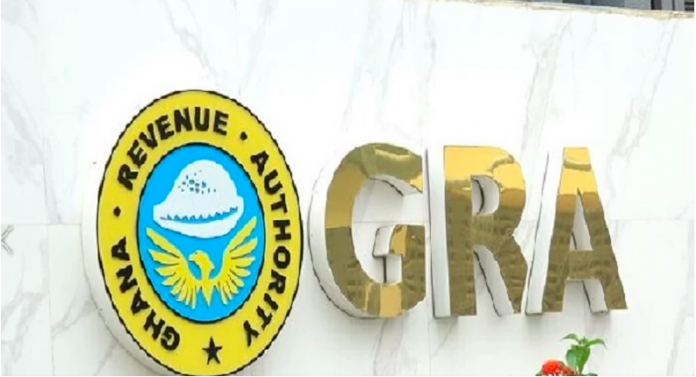Efforts to increase revenue mobilization are bearing fruit, with the Ghana Revenue Authority (GRA) exceeding its target for last year by GH265.39 million, according to data.
The authority collected GH57.32 billion in revenue in 2021, compared to the target of GH57.055 billion, owing primarily to the closure of loopholes for tax avoidance by certain multinationals in the extractive sector, the deployment of digital and specialized monitoring platforms for tax collection purposes, and increased focus on growth sectors of the economy.
The amount collected last year was approximately GH265.39 million, or 0.5 percent above the government’s target for the GRA, and the achievement occurred during a period when the COVID-19 pandemic slowed business and economic growth in general.
As a result of the strong revenue growth last year, the tax to gross domestic product (GDP) ratio increased to 13.4 percent, up from around 12 percent in recent years.
Breakdown
The GRA’s Commissioner-General, Rev. Dr Ammisshaddai Owusu-Amoah, told the Daily Graphic last Friday that the authority’s domestic tax and customs revenues performed admirably well.
While domestic tax revenue totaled GH41.23 billion last year, a 25.6 percent increase over 2020 revenue, the authority’s Customs Division collected GH16.08 billion, a 26.8 percent increase over 2020 performance, he said.
Unlike in recent years, when revenue targets were revised downward to reflect prevailing economic conditions, last year’s target was not revised, making the amount realized a significant accomplishment.
He added that realized revenue also broke and established new records, including the highest annual growth rate in ten years and the highest revenue-to-GDP ratio in five years.
Reasons
Rev. Dr Owusu-Amoah explained that the achievement was made possible by the deployment of digital platforms for tax return filing and payment, which boosted the GRA’s capacity to collect revenue during the pandemic.
Additionally, it was due to the new strategy’s increased emphasis on businesses in high-growth sectors such as mining, information and communications technology (ICT), and finance.
He stated that while the pandemic had marginalized businesses, an internal study revealed that the sectors were experiencing tremendous growth, resulting in the decision to focus more attention on them for revenue mobilization purposes.
He also stated that the GRA strengthened its management and staff’s capacity to pursue multinational corporations, particularly those in the extractive sector, in order to collect appropriate revenue from them.
This resulted in a significant reduction in tax avoidance measures used by businesses, such as transfer pricing, and a corresponding increase in their taxable income, the commissioner-general stated.
“The majority of companies operating in the extractive sector are multinational corporations, and one of their practices is profit shifting and base erosion. They find ways to reinvest their profits, which reduces the amount of taxes they owe us. However, we discovered a way around this “‘He stated.
He explained that the authority developed its staff’s capacity to identify and close those loopholes, compelling businesses to pay the correct taxes to the state.
“So, having an effective and better understanding of transfer pricing enables you to handle these things for tax purposes, which is what we did last year; we intend to do even more this year,” Rev. Dr Owusu-Amoah explained.
Digitalisation
Additionally, he explained, the accomplishment was a result of increased digitalisation of revenue collection, which enabled taxpayers to file returns and pay taxes online as well as through digital platforms.
He added that the implementation of the Integrated Customs Management System (ICUMS) to streamline customs operations and the establishment of a monitoring system to track downstream petroleum activities also contributed to the increase in customs revenue collection.
“Most importantly, these accomplishments in 2021 are also the result of an improved and positive work attitude on the part of the authority’s management and staff. Their dedication to this performance simply cannot be overstated,” he stated.
Agenda for transformation
Rev. Dr Owusu-Amoah stated that last year’s accomplishment energized the authority’s management and staff to meet and possibly exceed this year’s target.
He added that the GRA’s transformation agenda, which included making tax payment and return filing more convenient for taxpayers and tracking business activities to ensure that all revenues were collected, was also producing the desired results.
“In addition, the cashless policy, which enables taxpayers to pay taxes online and at banks, and the taxpayers’ portal, which enables taxpayers to file returns from the comfort of their homes, have increased tax administration and collection transparency and efficiency,” he said.
Prior objectives
Since 2017, the GRA has increased revenue collection by double digits annually, with the exception of 2020, when revenue collection increased by just 3.4 percent, owing largely to the outbreak of the COVID-19 pandemic.
Annual tax revenue increased by 22.4 percent in 2017, 16.6 percent in 2018, and 16.5 percent in 2019, before declining to 3.4 percent in 2020.
Since 2017, midyear budget reviews have revised the targets downward to reflect prevailing economic conditions. Despite the raging pandemic, last year’s target was not revised downward.
Source: TheBBCghana.Com


















